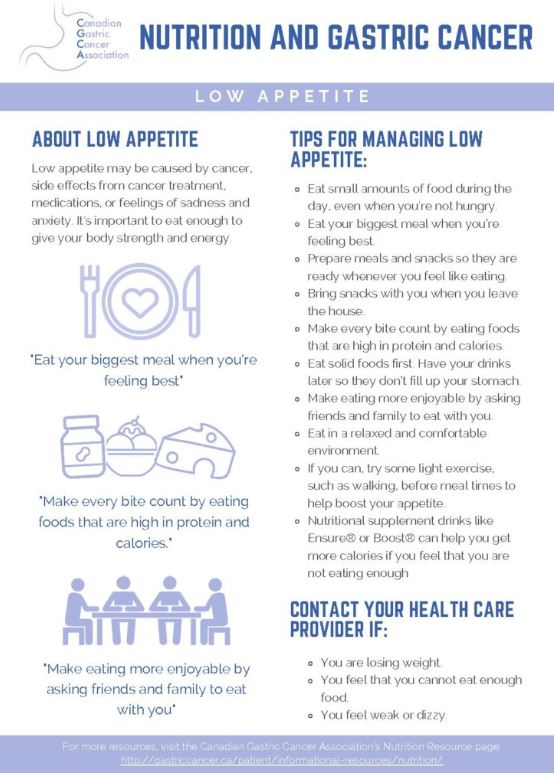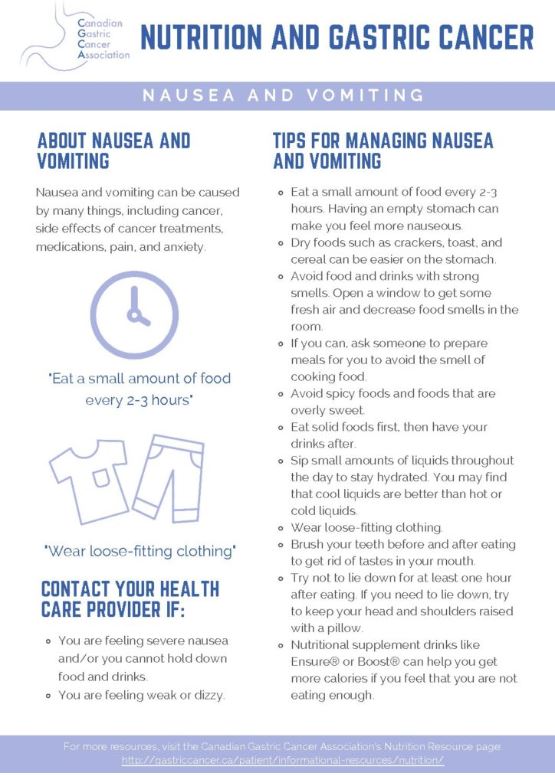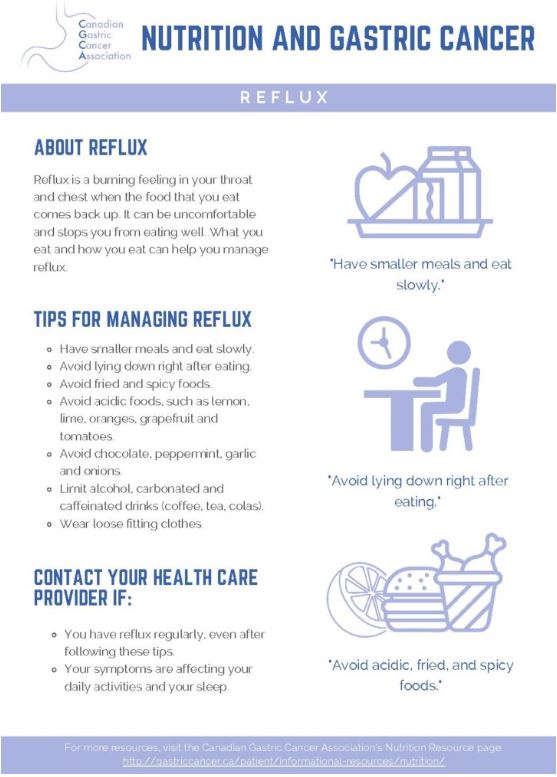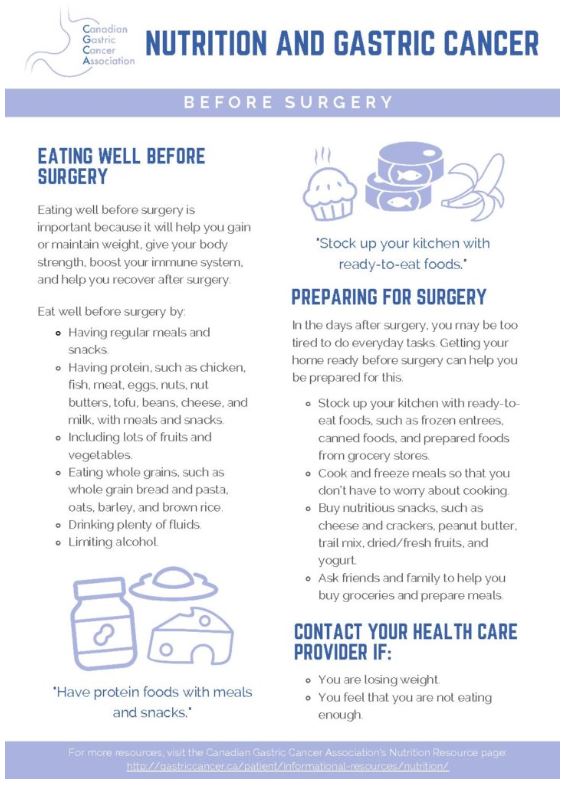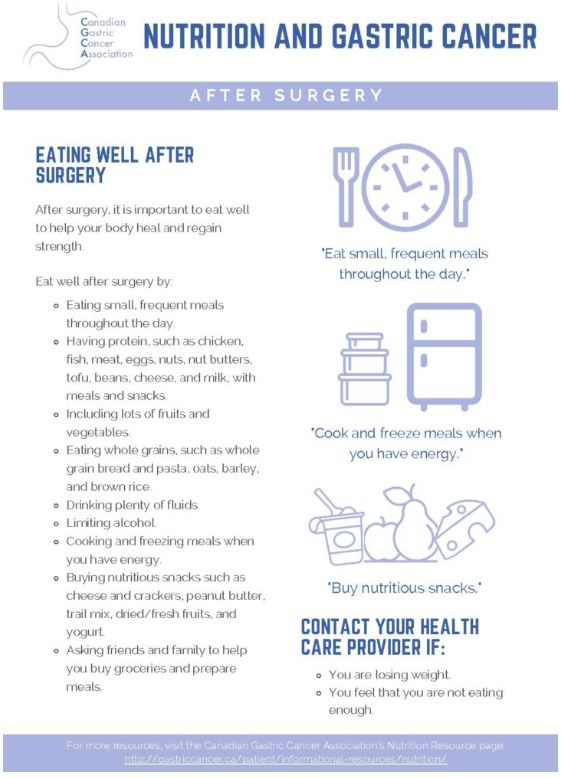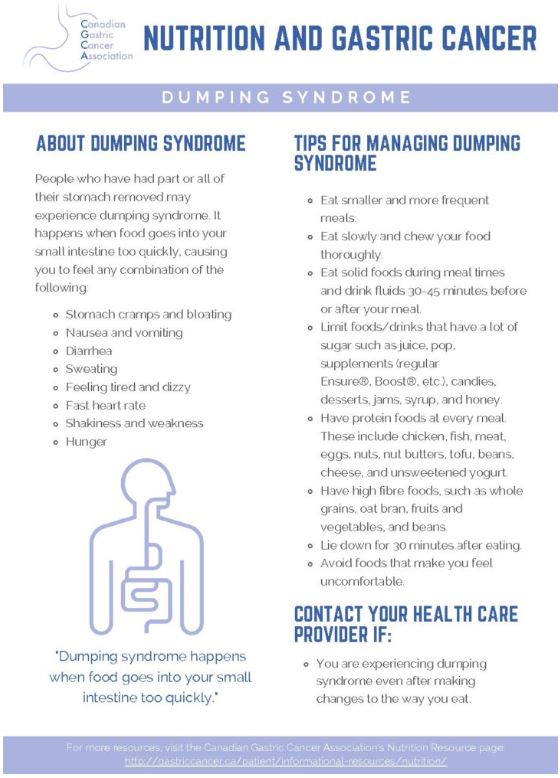Diarrhea (frequent loose, watery poo) is common for people with gastric cancer. Cancer treatments, infection, medications, and stress can cause diarrhea. If diarrhea is ongoing, it can lead to dehydration, weight loss, weakness, and poor nutrition.
If you have had stomach surgery, diarrhea may be caused by Dumping Syndrome. More information about Dumping Syndrome can be found in the After Surgery section.
Tips to manage diarrhea
- Sip lots of fluids throughout the day to stay hydrated.
- Eat small meals and snacks.
- Limit greasy, fried, and spicy foods.
- Avoid sugary foods, such as candy, desserts, fruit juices, and soda.
- Eat salty foods like crackers, pretzels, and soups to replace the salt lost in diarrhea.
- Eat foods that are high in soluble fibre, including bananas, barley, bran, and oats.
- Choose white bread or pasta, and white rice to help thicken poo.
- Avoid prunes, prune juice, rhubarb, papaya, and sugarless gums and candies. These foods can worsen diarrhea.
When to contact your health care team
Speak to your health care team if:
- You have new diarrhea for multiple days.
- You feel weak, dizzy, or confused.
Sometimes, a doctor may prescribe medications to help your diarrhea. Ask your health care team for more information about medications.
Other resources
Food Ideas to Help Manage Diarrhea
BC Cancer Agency: Diarrhea
Cancer Care Ontario: How to Manage your Diarrhea
Canadian Society of Intestinal Research: Diarrhea and Diet
Printable PDF:




